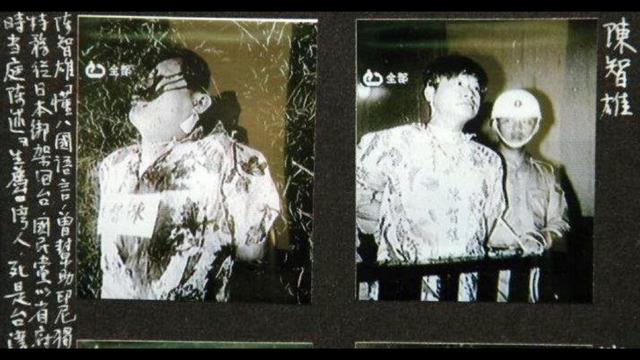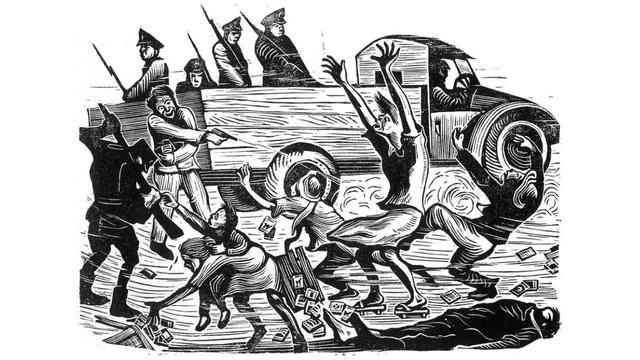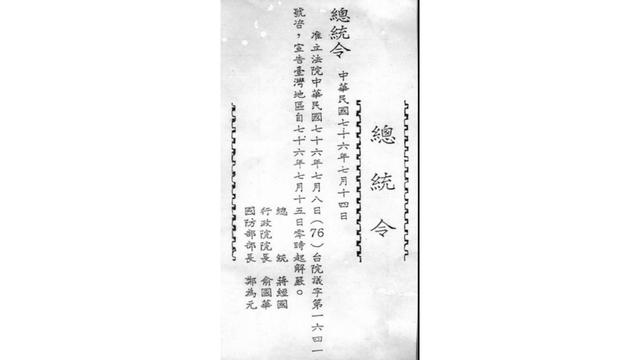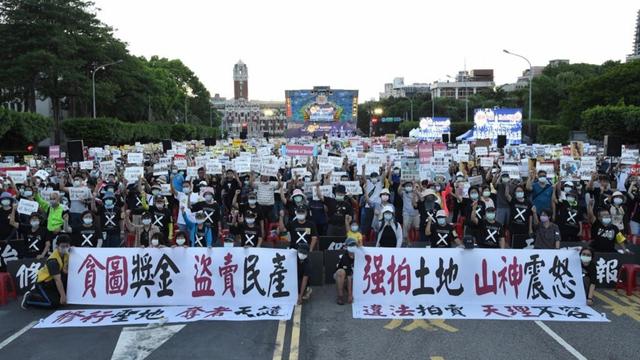After the Martial Law was lifted, not all the problems of democracy were solved in Taiwan, as the Tai Ji Men case demonstrates.
by Sara Susana Pozos Bravo*
*A paper presented at the webinar “Social Justice, Tax Reform, and the Tai Ji Men Case,” co-organized by CESNUR and Human Rights Without Frontiers on February 20, 2023, World Day of Social Justice.

Political power, exercised outside the law, can turn into authoritarianism and dictatorship. Dictatorships represent the terror of power that, in the best of cases, restricts rights, but in the worst, annihilates them. The history of the last century and of this one shows how political power has trampled on human rights and marked forever several generations.
Taiwan’s dictatorship has been no exception to this rule. Taiwanese who experienced the “White Terror” know what living in a dictatorship means. The efforts by the Taiwan government since the lifting of Martial Law in 1987 to compensate for the damages caused by the “February 28 Incident” (the brutal suppression of an uprising in 1947, which caused the death of some 30,000 civilians) and other human rights violations, failed to generate a sense of justice for the victims and their relatives. They were still demanding the trial of the military and civilians who were still alive, and who were responsible for arrests and killings of civilians in that period.
Although the signals sent by some of the Taiwanese governments that were in power after the lifting of Martial Law in 1987, specifically with respect to an economic fund to compensate the damages caused by the “White Terror,” can be understood as democratic actions within the framework of human rights, “something” inexplicable and shamefully contradictory cast doubts on their intentions. That “something” is the Tai Ji Men case.
The Tai Ji Men case has its origin in the abuse of authority by the political power, and in the transformation of the White Terror into the terror of persecution. The transition to democracy was a crucial time in which Taiwan tried to reinvent itself. However, precisely in that period, there were cases when justice was denied, and impunity for corrupt bureaucrats seemed to extend for decades.

The Tai Ji Men case is just a new and blatant case of systematic violation of the universal principles of equality and non-discrimination. Indeed, when the political power defines certain religious and spiritual groups with a specific concept with the intention of stigmatizing them, it also starts spreading the idea that “the others” do not have the same rights as “us,” and, therefore, can be subject to persecution and discrimination. At the same time, the decades and even centuries in which the power has imposed this vision have established a culture that makes stigmatized groups invisible, denying them all their rights.
In Chinese language, the relevant concept is called “xie jiao.” This concept can be equivalent to the more commonly used term “cult” on this side of the planet, “secta” in Spanish. The term “cult” was used to denigrate, prejudice, and stigmatize any religious group that did not agree with the beliefs of the majority. Although in Mexico even some laws and regulations contained the equivalent word “secta,” some years ago it stopped being used in the laws because it was considered highly discriminatory.
I understand that the term “xie jiao” is somewhat similar, but, undoubtedly, its scope and connotations are much more serious, because it gives rise to an organized institutional persecution from the political power, something that has not happened, or at least not recently, with the term “secta” in Mexico. And when political power is used against the citizenry and the civilian population to repress any attempt at democratization, it dehumanizes those who abuse it and distances them from the highest civilizing values.
Almost a decade after Martial Law was lifted in Taiwan, in 1996 a wave of repression demonstrated that decades or centuries in which the political power stigmatized groups it wanted to destroy continued to have effects, and had created a sort of “customary law” that legitimized serious violations of human rights. Consequently, the use of the term “xie jiao” was a recipe for terror, and opened the way to persecution against certain religious and spiritual movements falsely accused of fraud and use of black magic.
It was nothing new for those who knew the modus operandi of a persisting authoritarian culture in the context of the end of Martial Law and the transition period in Taiwan—but it was completely inexplicable from other latitudes of the planet.

The political power always uses other powers and other actors to convince a population of lies that it then transforms into “evidence,” and finally uses as “proofs” to accuse and condemn the innocent. These powers are the media, the lack of a true division of powers as envisioned by Montesquieu, and corruption.
The media play—and played—a very important role in building in the public opinion a negative, distorted, and slanderous image of Tai Ji Men and of other groups whose religious leaders were arrested in the 1996 crackdown. More serious, however, was the fact that the bureaucrats of the National Taxation Bureau (NTB) ignored the ruling of the criminal division of the Taiwan Supreme Court, which exonerated Dr. Hong, the leader of Tai Ji Men, and his co-defendants who had been detained in the 1996 crackdown.
The case went on and on, longer than any other of those resulting from the 1996 crackdown, and continues more than 26 years later. Why?
Because a discourse that promotes peace demands peaceful actions. Because a discourse that teaches respect demands respect. Because an organization that has at the heart of its spiritual worldview the harmony between heaven and earth facilitates the restoration of the physical, mental and spiritual health of the human beings. And that is what Tai Ji Men has done as a spiritual life philosophy for thousands of people. And that is why some do not like it.

Dr. Hong and Tai Ji Men have demonstrated congruence between their moral and religious principles and their actions. They have withstood the full weight of political repression for more than 25 years, and have shown resilience in all weathers. The admiration for the group has grown, and international empathy has been in their favor. However, in some way, the persecution against them should warn us of the importance of raising our voices against all injustice, whether in Taiwan, South Korea, or Mexico.
The ECOSOC-accredited NGO Association of World Citizens and the Tai Ji Men Qigong Academy have designated December 19, the day the Tai Ji Men case began in 1996, as the “International Day Against Judicial and Tax Persecution by State Power.” Thus, every December 19, all of those who have suffered persecution or discrimination legal, fiscal, or of any other kind should unite, share experiences, identify patterns of abuse of power, exchange opinions, and applaud each other for coming out to stand up against those who have corrupted power to use it against their own citizens. The new generations must know that we did everything in our power to leave them a better world.
Source: Bitter Winter

